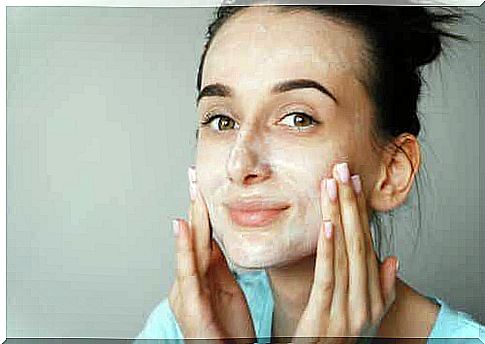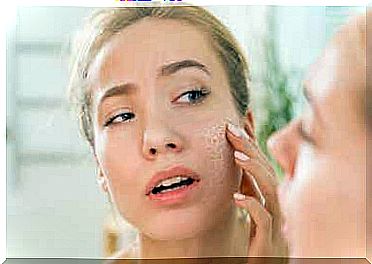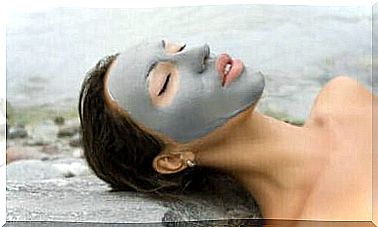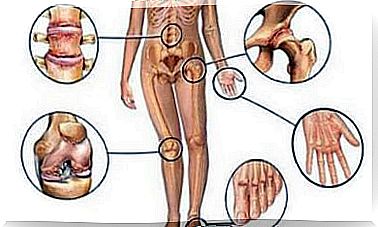All About Peptides And How They Benefit The Skin

Nowadays, there are an overwhelming number of new products and technologies for aesthetic or cosmetic purposes. These include peptides for the skin.
Peptides are short amino acid chains. They are important for the skin, as they are the building blocks of collagen and elastin.
Although the body naturally produces peptides, collagen production decreases at a rate of 1% per year after the age of thirty.
This is why the skin loses its smoothness and begins to look wrinkled, flabby and less glowing. Therefore, peptides are included in many self-care products today.
Given that there are many trends and components that claim to be “miracle” products to regain youthfulness, are peptides really effective? We try to answer this question below.
All about peptides for the skin: different types

We must start by noting that there are several types of peptides, each of which has different functions and effects on the skin. Here are the most important:
Cell Penetrating Peptides (CPP)
They can cross cell membranes. They supply minerals (such as calcium, manganese and iron), which can increase collagen levels.
Enzyme inhibiting peptides
This type of peptide inhibits certain enzymes, as the name suggests. For example, angiotensin, which is primarily found in the vascular system. On the other hand, they help stop the skin’s natural breakdown process for collagen.
Signal or transit peptides
Signal peptides are the first to appear in the synthesis of the polypeptide chain and indicate the destination of proteins. When the “message” is delivered to the skin , they help promote the production of collagen and elastin.
Neuropeptides
Neurotransmitter peptides are chemical substances that consist of amino acids. They are secreted by nerve endings and affect the activity of various organs.
This blocks certain chemicals, the release of which causes muscle contraction. Thus, they smooth out wrinkles and fine lines when it comes to aesthetic effects.
Tetrapeptides and hexapeptides
Depending on the length of the peptide chain, we have tetrapeptides, pentapeptides and hexapeptides. They all have different functions and effects:
- The former, t etrapeptides and pentapeptides, act on sensitive areas (such as bags under the eyes) and are firming agents. In turn, pentapeptides stimulate tissue repair, contribute to healing and improve and increase collagen synthesis.
- For its part, hexapeptides help to relax muscles by acting on dynamic wrinkles. They have a similar effect to botox, without needles or the side effects of the use of this drug.
Other peptides
Peptide Q10 promotes the synthesis of coenzyme Q10. Experts have studied the effect of this on athletic performance. They also consider it an antioxidant that slows down premature aging and neutralizes free radicals.
Finally, there are also copper peptides. Experts are still studying the properties, as they estimate that it can prevent oxidative activity of this metal on cells. However, the aesthetic effects have not yet been proven.
Peptides and the benefits for the skin

Peptides have many functions in the body. They are the building blocks of enzymes and hormones and are also sources of energy.
It is important to remember that peptides “tell” the cells that they need to produce more collagen when it is broken down to replace what is lost.
Therefore, the main function of peptides is to help with collagen production, protection and replacement. We can say that the other benefits are derived or are a consequence of this.
Peptides benefit the skin in several ways:
- Hydration. Reduced collagen levels lead to dehydration. As peptides increase the production of this substance, they reverse or dampen the effect of moisture loss in the skin.
- Skin softness, elasticity and firmness. The immediate consequence of increased collagen production and moisture is visible softness, elasticity and firmness in the skin. Remember that peptides also make up elastin fibers.
- Reduction of wrinkles and lines of expression. Increased collagen translates into smoothness and a youthful appearance. This is because wrinkles and lines of expression are less visible when the skin is firmer and smoother.
- Skin barrier. Peptides are the first line of defense against infections. Increased collagen production makes the skin stronger and more resistant.
How peptides work on the skin
Peptides are amino acid chains, and amino acids are the building blocks of proteins throughout the body.
When you use products and treatments that contain them, they penetrate the skin and send a message to the body’s cells telling them that they need to produce more collagen. In a way, it’s like you fooled your body. But in this case, the goal justifies the means.
There are other ways to stimulate collagen production, in addition to using cosmetic products. Some foods are rich in this substance, such as gelatin and salmon, while tomatoes and peppers cause the body to produce it itself.
What to look for in a peptide skin care product
In general, they are beneficial for the skin. However, they are not all created equal. We explained above that some give signals to stimulate collagen production, while others inhibit enzyme production. Nevertheless, most types act as water collectors.
You can also combine peptides with other ingredients. By binding to specific skin receptors, various peptides can have many effects, for example: anti-aging, hydration, antioxidant, firmness or elasticity, tissue repair, skin lightening and acne reduction, among others.
You should consider the following when choosing a peptide skin care product:
- Make sure it contains peptides. Keep in mind, though, that it can sometimes appear under a different name ( such as palmitoyl ).
- Choose the most appropriate product composition. For example, creams are more effective because they are in contact with the skin longer. This means that the skin will absorb the peptides more.
- No product contains everything, so you should base your choice on your needs. It is important to note that tetrapeptides increase elasticity and firmness, while hexapeptides help with glow or appearance.
- Finally, take a look at the other ingredients. Some peptides work better when combined with other elements. For example, vitamin C and niacinamide. Thus, it is great if a peptide skin care product contains them.
Contraindications and things to keep in mind when using peptides on the skin

Yes, these drugs may seem miraculous, but there is always a downside.
First , the word “peptide” can be used generically to refer to any short amino acid chain.
In fact, there are many different types, and not all of them have effects on the skin. Thus, it is possible that the term is used as a “label” for marketing purposes, even if the product does not contain an ingredient that can regenerate the skin.
Studies are still being conducted. Some peptides have already been analyzed, but only in controlled group clinical trials. In other words, small samples or under laboratory conditions (in vitro). While peptides may be beneficial for the skin, there is still a long way to go before scientific claims can be made.
The good news is that no adverse reactions have been observed, they are non-toxic and have only a few side effects. Very rare allergy cases have been reported. The only downside is that they are often expensive.
Are peptides a source of youth?
Like many other products, they are advertised as the ultimate treatment for aging. You can find them in creams, masks and other products in large chains or online stores.
Yes, peptides can help, but they are not miraculous. It takes a combination of different factors, from diet and exercise to adequate hydration and stress reduction, to reduce or delay aging. You must also remember that peptides are already in your body.
You can use them in moderation, twice a day max. Also, be sure to choose the right product that your skin will absorb in a better way.
Meanwhile, medical researchers are still studying the skin rejuvenating effectiveness of peptides.









